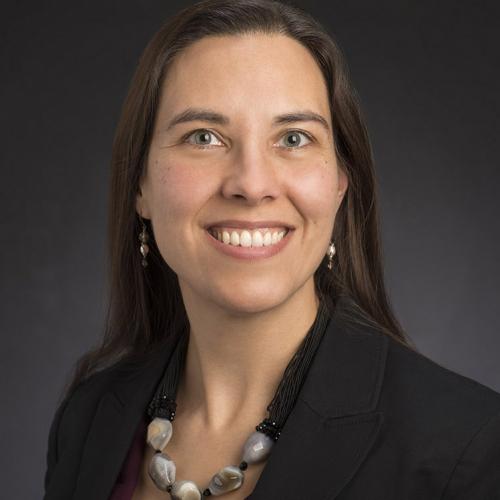Assistant Professor Elizabeth Massa Hoiem is one of six Illinois faculty members who have been awarded National Endowment for the Humanities Fellowships for 2018. It is the third year in the last four that the Urbana campus has garnered more fellowship awards than any other single institution.
In addition to Hoiem, fellowship recipients include Donna Buchanan, a professor of music; Candice Jenkins, a professor of English; Paul Kapp, a professor of architecture; D. Fairchild Ruggles, a professor of landscape architecture; and Craig Williams, a professor of classics.
"Congratulations to our NEH Fellowship recipients. It is gratifying to see these exceptional scholars recognized for their academic achievements," said Chancellor Robert J. Jones. "These prestigious fellowships are highly competitive, and for Illinois to have six faculty members named NEH fellows this year indicates the excellence of the scholarship in humanities on our campus."
The U. of I. fellowships were among $12.8 million in grants awarded by the NEH for 253 humanities projects across the nation. The fellowship program supports advanced research in the humanities, and the recipients produce articles, books, digital materials, or other scholarly resources.
The NEH has received an average of 1,178 applications per year for fellowships in the last five rounds of competition, according to the NEH website. Over that time, it awarded an average of 80 fellowships per year for a funding rate of 7 percent, making the fellowships among the most competitive humanities awards in the country.
Hoiem received the fellowship for her book project, "The Education of Things: Mechanical Literacy in British Culture, 1752-1860." Using children's literature and material culture, this book investigates ways that children learned directly from the physical world through object learning or "the education of things." This mode of learning promised to develop what Hoiem calls mechanical literacy, a fusion of reading and writing with manual tinkering and scientific observation that was mythologized during the industrial era as indispensable for social advancement. She argues that learning-by-doing also blurred boundaries between educational play and work, and thus offered an empowering pedagogy for affluent children while justifying child labor as educational.
Hoiem teaches in the areas of reading and literacy, history of children's literature, and fantasy literature. In her research and teaching, she explores the history of technological innovations in children's literature—from early children's books and toys to contemporary applications of digital pedagogy—analyzing lesser materials discovered through archival research. In addition to her book project, she is currently investigating how information is organized in nineteenth-century children's nonfiction according to children's cognitive development and spatial orientation, as well as how children's nonfiction addresses ethical questions about who makes things, under what conditions, and for whom. Hoiem holds a PhD in English from Illinois.
The National Endowment for the Humanities is an independent federal agency, and one of the largest funders of humanities programs in the United States.
